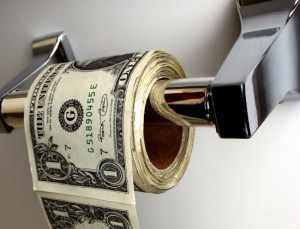 Say you’re a homeowner and you suddenly get the great idea to burn your house down because you’ve got a really nice, hefty insurance policy out on it against fire damage. You’re sure that’s a quick, easy way to get yourself some cash. Besides, no one will get hurt, right? The fire department is usually pretty quick to act…it shouldn’t affect surrounding homes and businesses too much, should it?
Say you’re a homeowner and you suddenly get the great idea to burn your house down because you’ve got a really nice, hefty insurance policy out on it against fire damage. You’re sure that’s a quick, easy way to get yourself some cash. Besides, no one will get hurt, right? The fire department is usually pretty quick to act…it shouldn’t affect surrounding homes and businesses too much, should it?
Oh, wait. That’s illegal. Oops.
Unfortunately, it’s only illegal for you and me and setting fire to our houses. It’s apparently not illegal at all for corporate bond and debt investors. Follow the jump to see this analogy find logical completion.
What happened to Chrysler is likely to happen again with GM because investors stand to gain more from their bankruptcy (and the insurance they’ve taken out on the debts they’re owed) than they do if the company manages to dog-paddle its way back to profitability—so asserts Newsweek’s Daniel Gross. In both my example and in the harsh light of reality, what matters most is short-term gain—nevermind whose houses are left to burn down to the ground.
 The term “empty creditor” has recently been coined by University of Texas Banking and Finance Law professor Henry Hu to describe this behaviour, and there’s a fascinating article that explains the concept and his findings in much greater detail that you may want to check out. When I first read the term, as you might gather from the photo, I thought of the Doctor Who episode titled “The Empty Child.”
The term “empty creditor” has recently been coined by University of Texas Banking and Finance Law professor Henry Hu to describe this behaviour, and there’s a fascinating article that explains the concept and his findings in much greater detail that you may want to check out. When I first read the term, as you might gather from the photo, I thought of the Doctor Who episode titled “The Empty Child.”
Only, obviously, these particular children are instead crying “Are you my money?” And no one’s slapping their hands away.
